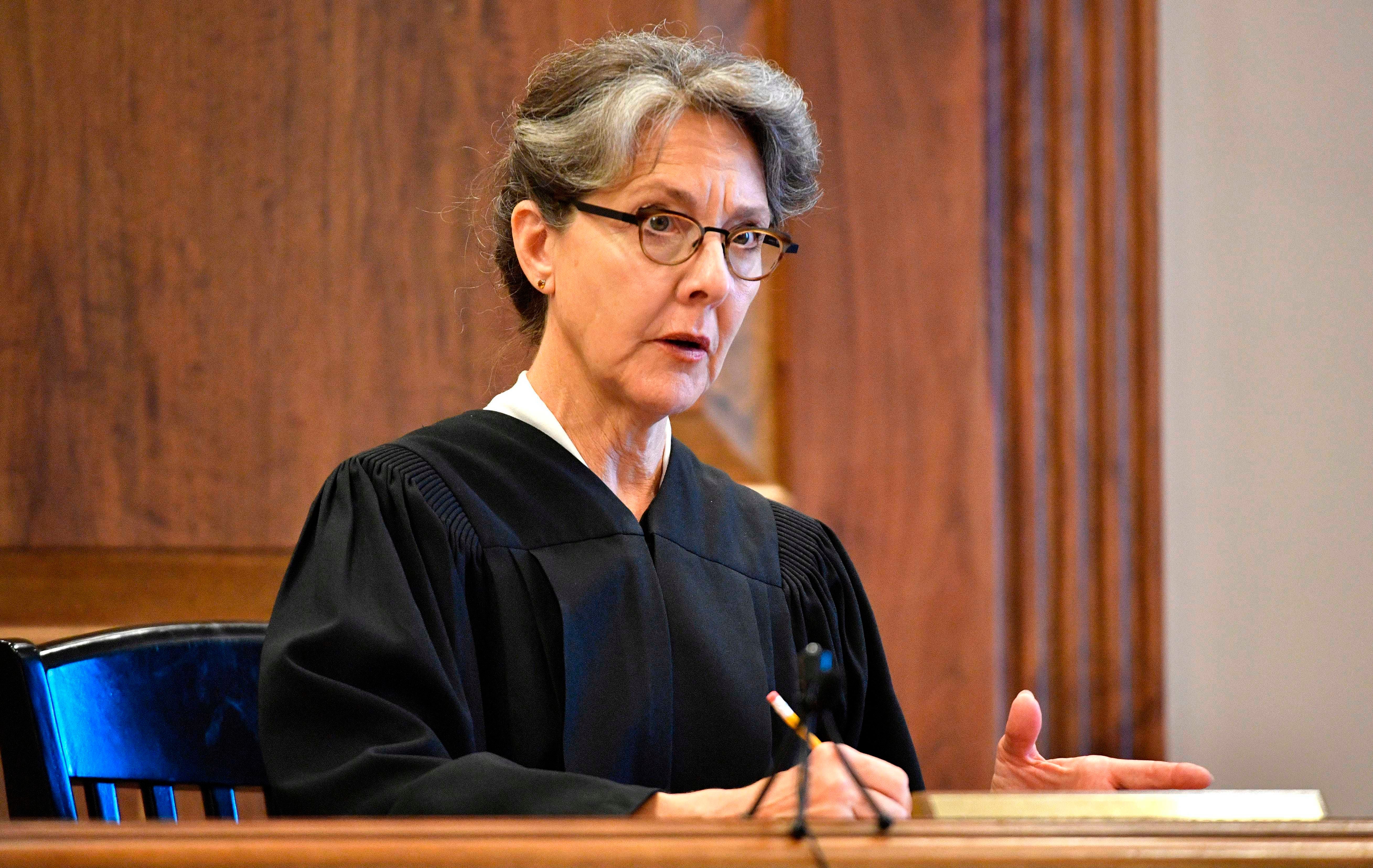House panel rejects push to oust judge over absentee voting
A Tennessee House panel has rejected a push to remove a judge for expanding absentee voting in 2020 in response to the COVID-19 pandemic

Your support helps us to tell the story
From reproductive rights to climate change to Big Tech, The Independent is on the ground when the story is developing. Whether it's investigating the financials of Elon Musk's pro-Trump PAC or producing our latest documentary, 'The A Word', which shines a light on the American women fighting for reproductive rights, we know how important it is to parse out the facts from the messaging.
At such a critical moment in US history, we need reporters on the ground. Your donation allows us to keep sending journalists to speak to both sides of the story.
The Independent is trusted by Americans across the entire political spectrum. And unlike many other quality news outlets, we choose not to lock Americans out of our reporting and analysis with paywalls. We believe quality journalism should be available to everyone, paid for by those who can afford it.
Your support makes all the difference.A Tennessee House panel on Tuesday rejected a push to remove a judge for expanding absentee voting in 2020 in response to the COVID-19 pandemic, siding with prominent attorneys who warned the ouster would be an unprecedented breach of judicial independence.
The House Civil Justice Subcommittee squelched the effort by voting down a resolution to initiate removal hearings against Davidson County Chancellor Ellen Hobbs Lyle. The subcommittee didn't grant a request from Republican sponsor Rep. Tim Rudd to delay consideration of the resolution for several weeks.
In the House, 65 of 73 Republicans had signed on in support of the proposal, which called for creating a House-Senate panel to make a recommendation on the judge's removal. If the panel voted in favor, a two-thirds vote in each chamber would then have been needed to remove Lyle. The prospects looked less favorable in the Senate, where a version of the resolution had not drawn any co-sponsors.
Lyle's ruling in June to expand absentee voting was ultimately overturned by the state Supreme Court but only after the state changed course to promise to allow people at higher risk of COVID-19 complications and their caretakers to vote by mail. Later, Lyle extended absentee voting to all those living with a person at high risk of complications from COVID-19, ruling that the state had promised the Supreme Court that they could vote absentee as well.
Lyle's rulings in the case were harshly criticized by Secretary of State Tre Hargett and Attorney General Herbert Slatery, both Republicans.
Tennessee lawmakers have used their constitutional authority to remove judges only twice in the past 50 years. Both times, the judges faced federal criminal convictions.
Outraged Tennessee and Nashville bar associations spoke out against this latest push. Meanwhile, prominent attorneys statewide formed their own committee to fight it.
“Judges are out there now, they’re aware of what Chancellor Lyle is facing today,” Joe Riley, the former chief disciplinary counsel for the Court of the Judiciary, told the House Civil Justice Subcommittee. “And they’re wondering, ‘If I render an unpopular decision in a hot case ... do I stand a chance of losing my job?’”
In contrast to Tennessee, election officials in many states expanded access to absentee balloting or other voting methods because of concerns about the coronavirus spreading at crowded Election Day polling places. They did so despite arguments by former President Donald Trump and his Republican allies that they needed legislative approval.
Lyle, appointed in 1995 by Republican Gov. Don Sundquist, was reelected numerous times and is well known for her business litigation expertise. She’s up for reelection in August 2022.
The resolution accuses her of “pursuing a personal and partisan agenda” in the absentee voting case.
Knoxville attorney Celeste Herbert, a longtime friend of Lyle, told lawmakers that the judge is fair and honest, and only has “an agenda of service to the great state of Tennessee.”
As the pandemic took hold, Tennessee elections officials said fear of COVID-19 was not a reason to vote by mail. Ruling in two lawsuits filed by voters and voting rights groups, Lyle decided that Tennessee must offer widespread absentee voting amid the pandemic, and the eligibility remained in place for the August primary. The Supreme Court's ruling changed the voting parameters for November.
At one point, Lyle ruled that Tennessee officials weren't following her June order when they held off on sending coronavirus-related absentee applications for hours after the initial ruling. She also admonished them for rewriting the applications without her instruction. Hargett's Department of State criticized her orders as "confusing, conflicting, and a usurpation of authority.”